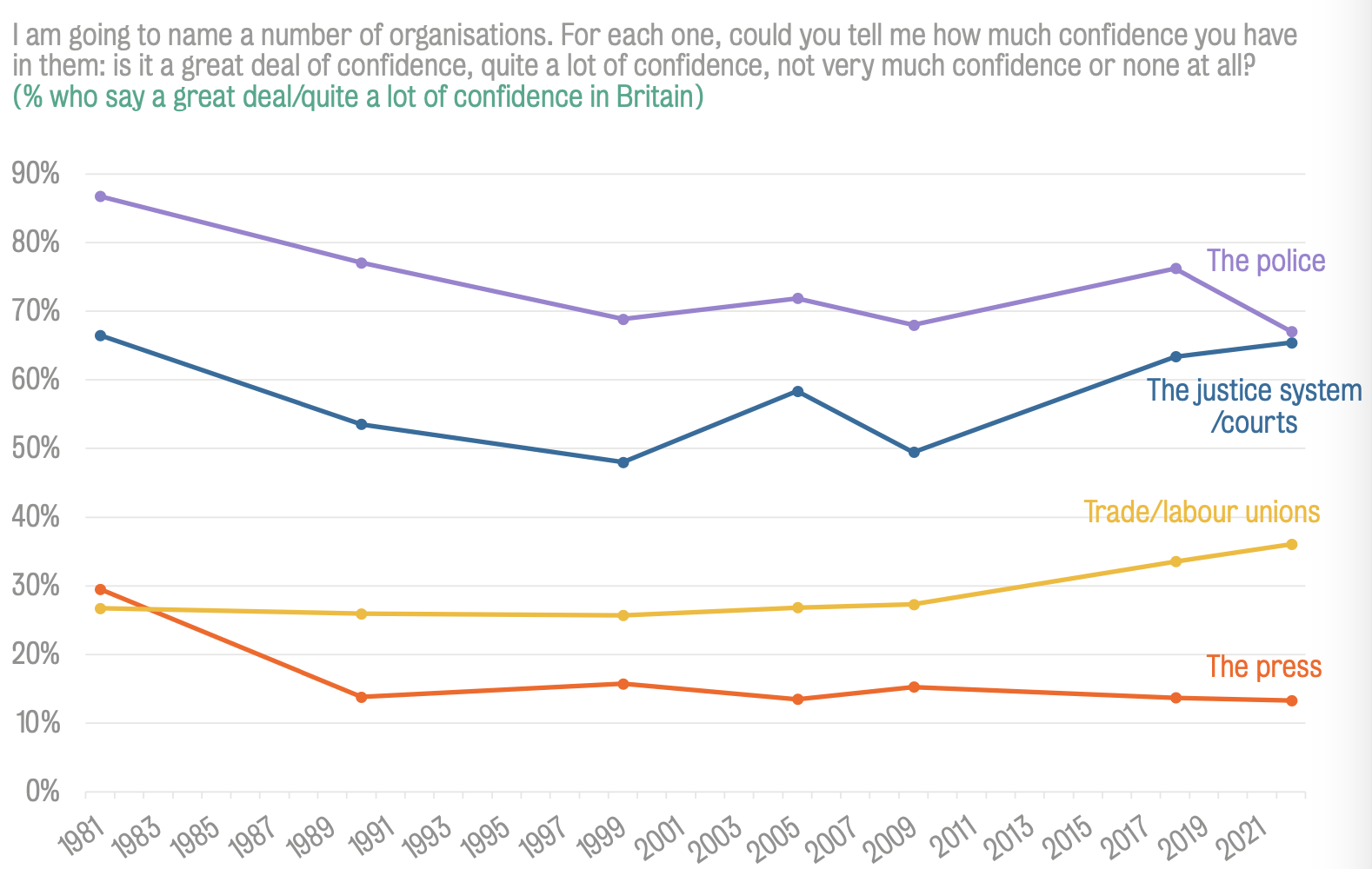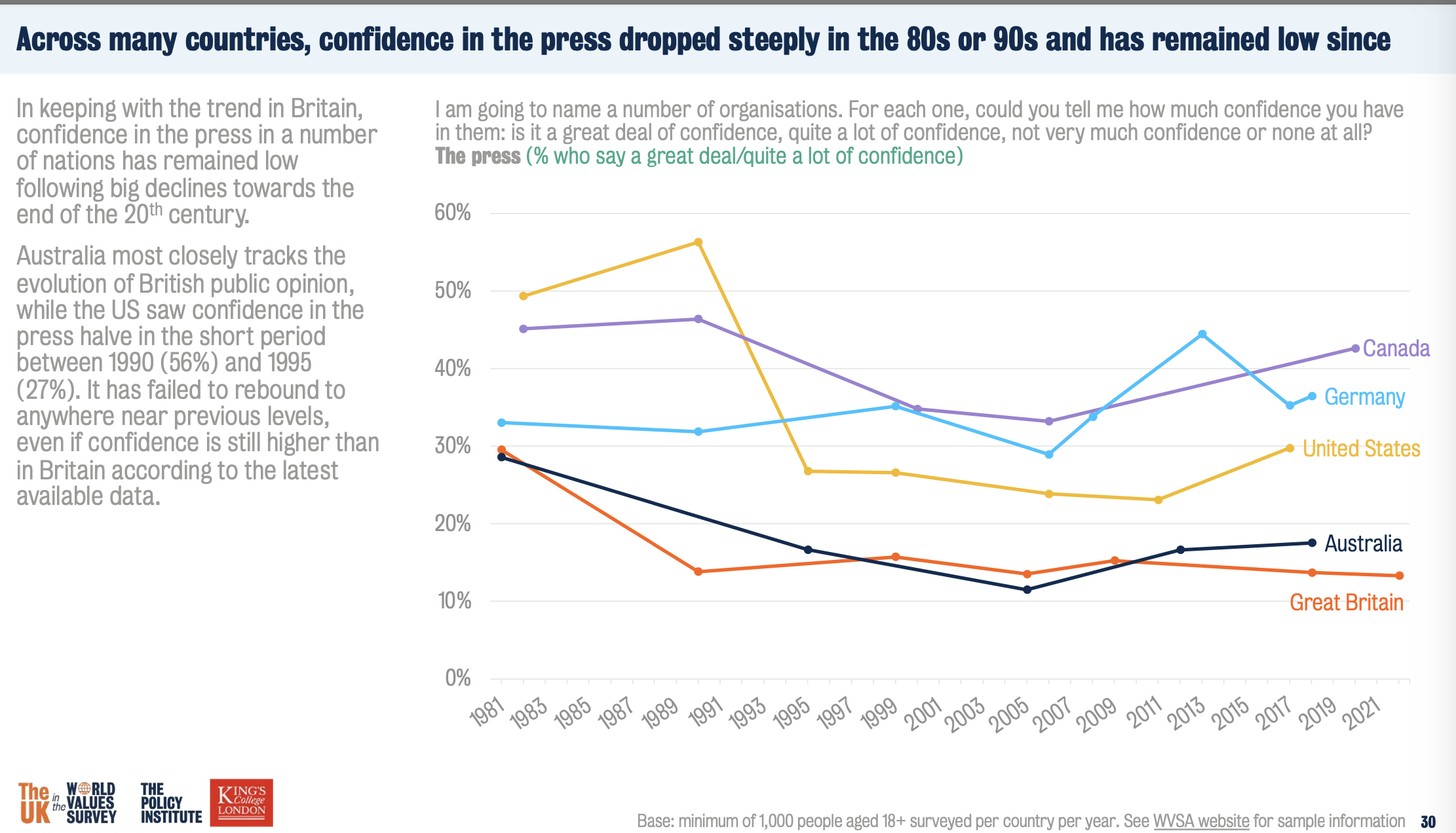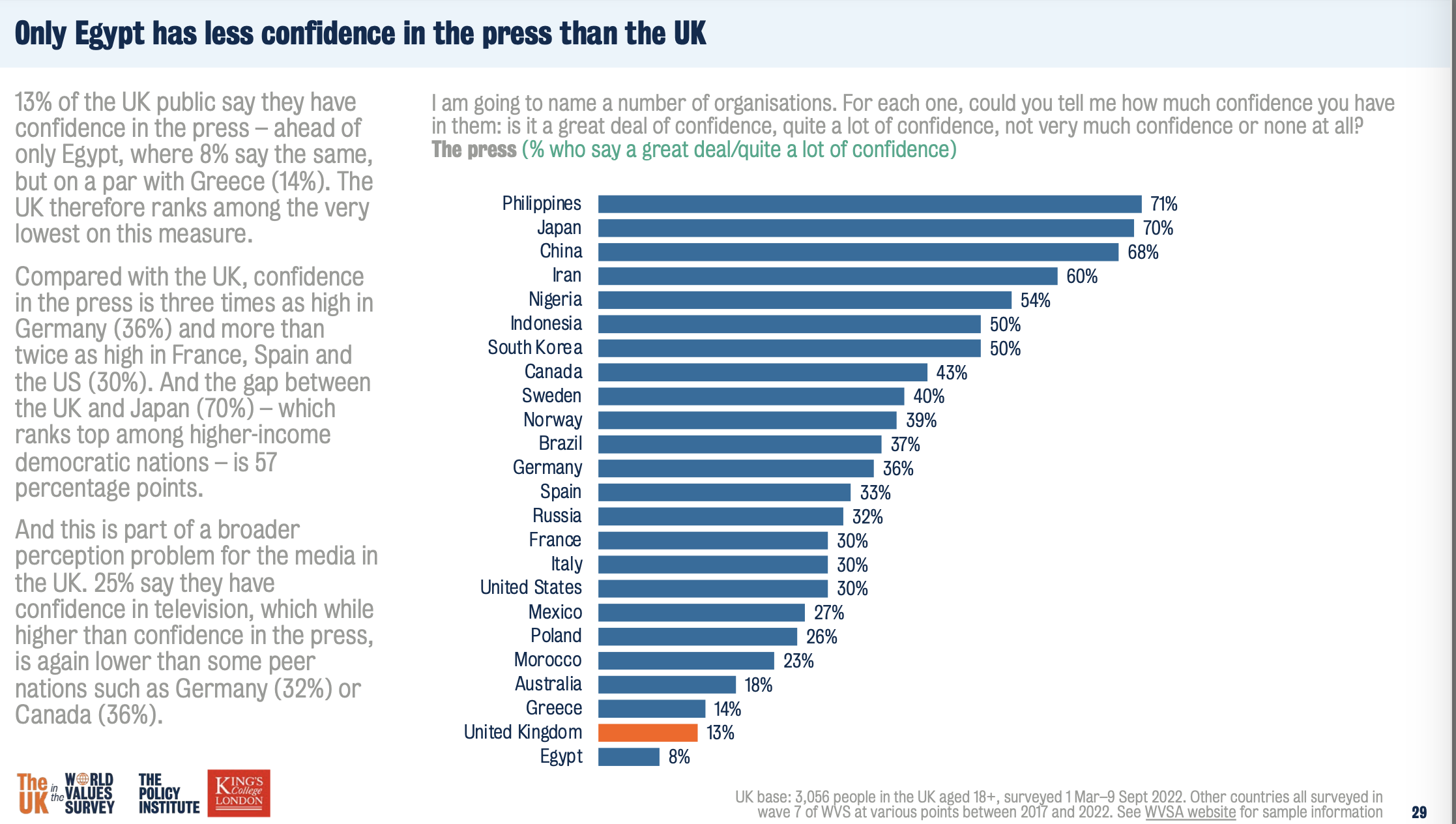I don't trust you and you shouldn't trust me

Opinion: 100% Media 0% Nonsense
Scepticism about our institutions, including the press, is not necessarily cause for alarm in a healthy democracy where we want trust in media to be earned.
Time to clutch your pearls again: the UK apparently comes second-lowest internationally when it comes to trust in the press.
“Of 24 countries, only Egypt (8%) has lower levels of confidence in the press than the UK (13%),” claims a study published last week by King’s College London.
According to this study, less than 20% of Britons have had a high amount of confidence in the press for over 30 years.
Strange that in a study about trust in institutions, people were surveyed about how much they trust the police, the government, parliament, and the police, but not universities. You’d wonder what alumni at King’s would have to say in particular, given the university’s own recent history of spying on student emails.
A lot to answer for
But nevertheless there is an issue with trust in the media and the press remains a highly influential part of media. Despite the UK having such a large state broadcaster in the BBC, the far smaller newsbrands (which we used to call newspapers before the internet) still set the news agenda almost every day.
Even though print circulation figures are so embarrassingly low nowadays they are effectively hidden from public view (see last week’s column), you will see a deluge of front pages Tweeted and shared every morning by moaners like me in your social media feed. Not all of this social activity is in the service of mocking — people still reference and link to stories in newsbrands as if they are, as the cliché goes, a first draft of history. So forgive me if it doesn’t feel like only three in every 20 highly trust the press.
The UK press has had a lot to answer for in the last decade: phone hacking, collusion between editors and the police, and, perhaps worst of all, a shameful few years by many newsbrands of supporting Brexit at all costs, despite the policy being such a wasteful, pointless and idiotic disaster of a policy.
I say having a mostly pro-Brexit press is the worst of these recent offences because it goes against the core principle of what journalism should be: sceptical, questioning and meticulous. Instead of slavishly picking a tribe and turning these periodicals into football club fanzines, there should be a natural inclination to be more critical of whatever people and parties are in power. Become more Right-wing when Labour is in power; veer to the Left when the Conservatives take charge. Show your readers you are standing up for them in your own right as an institution of the press, instead of becoming just another flimsy tentacle attached to the ruling government.
This is definitely part of the story as to why our publication was mandated by readers and Future of Media delegates last year to champion trust in media as one of our focuses for 2023. Yes, the comparative Wild West of social media attracts much of the heat over trust and rightly so. But if newsbrands are going to continue to sell themselves to marketers on the basis of having ‘quality journalism’ and editors in situ to verify the information they put out, they had better pay close attention when surveys like King’s sound the alarm.
No sacred cows
Having said that, we must be careful not to give undue credit to people who are generally smarter and savvier than people who work in media likely give them credit for. Just because we tell a survey that we don’t have “high” trust in the press does not mean we value news journalism or even that we don’t often read it.
People are generally aware we have (many) Right-wing papers and (few) Left-wing ones. I think people also generally know that journalists are professionals and get most stuff right. While they may report low levels of trust, people are capable for accounting for bias and missteps.
But even more fundamentally than that — people should be sceptical about the information they are given. Readers and viewers should never completely accept what any journalist writes or says is true. This is the whole principle of scientific enquiry: there are no sacred cows in knowledge and everything can be improved upon when a better argument or new set of facts are discovered.
If you look at how the UK compares to other countries with established democracies, it doesn’t compare all that badly, either.
As the survey points out, confidence in the press generally has fallen to lower levels since the 1990s and has remained low since. So maybe it’s not that people generally don’t trust the press in the UK, so much as people in strongly democratic countries are just more circumspect.
If you look at the international comparison for trust in 2022, it seems suspect that countries with the highest levels are, with the exception of Japan, all dictatorships or severely undemocratic.
As I write these very words, I the journalist should be mindful that any reader might call me out for bullshit or any kind of mistakes (many of you do and I’m grateful). This is what healthy democracy looks like: people holding each other to account, not just putting an X on a piece of paper every so often.
In other words, I shouldn’t trust you and you shouldn’t trust me. It’s a paradox but it works because trust is earned: the less we trust each other by default, the better journalism we should end up with.
***
Thanks for the many comments across social media, email, and below-the-line for last week’s 100% Media 0% Nonsense column about why marketers need to lead the media measurement debate. I’m particularly grateful for Radiocentre’s Mark Barber for promptly writing an opinion piece in response.
As promised, The Future of Brands agenda is now live and I’m really looking forward to more discussion about where next for media measurement.
 Omar Oakes is editor of The Media Leader. 100% Media 0% Nonsense is a weekly column about the state of media and advertising. Make sure you sign up to our our daily newsletter to get this column in your inbox every Monday.
Omar Oakes is editor of The Media Leader. 100% Media 0% Nonsense is a weekly column about the state of media and advertising. Make sure you sign up to our our daily newsletter to get this column in your inbox every Monday.






